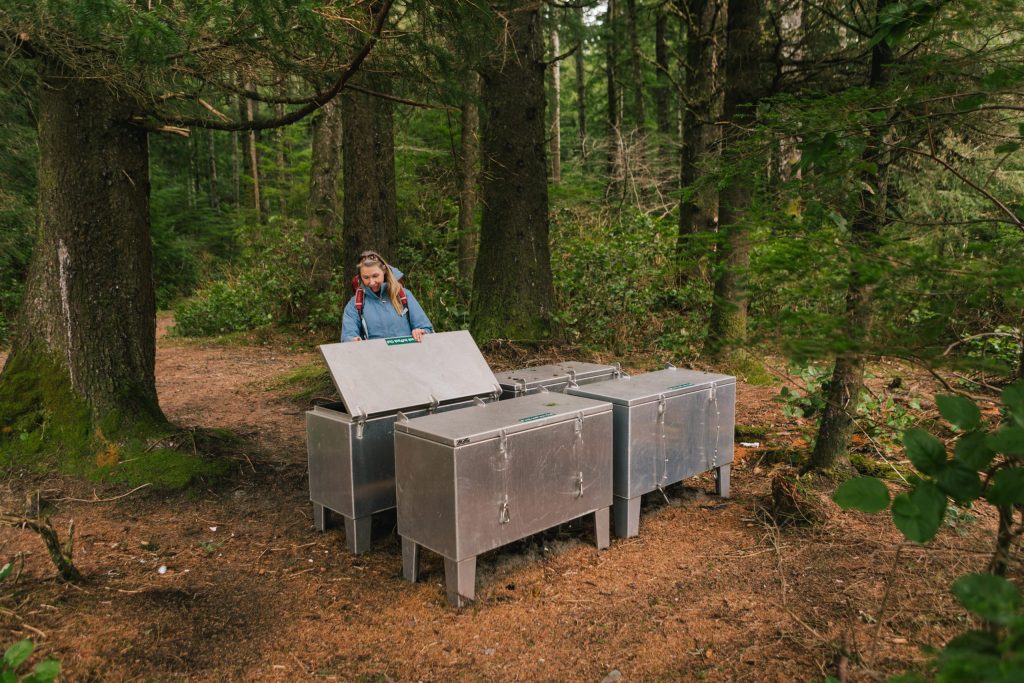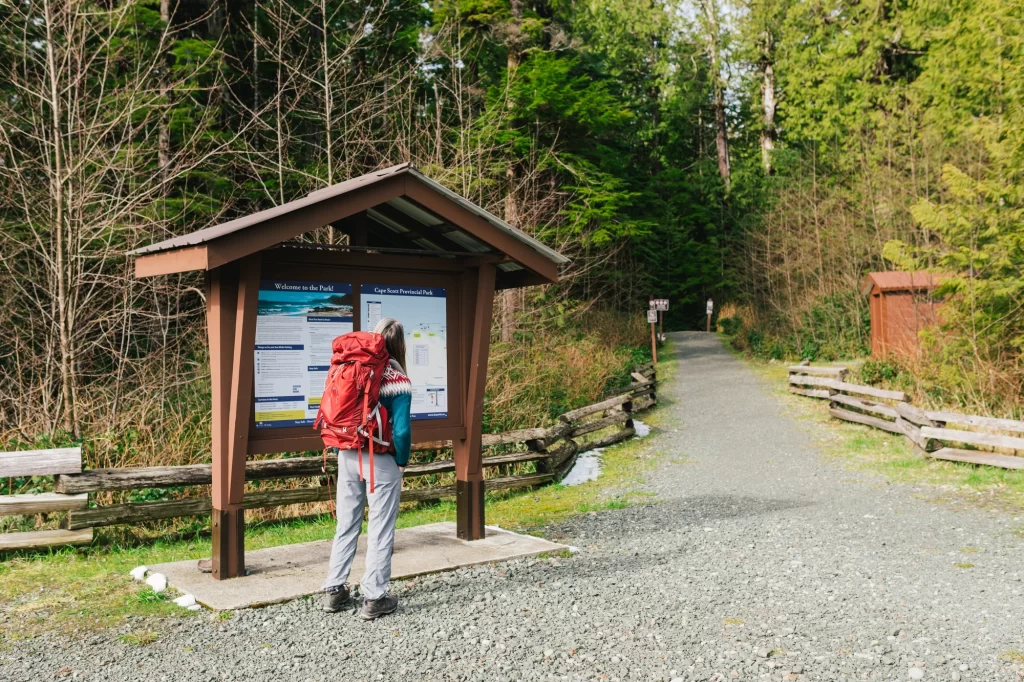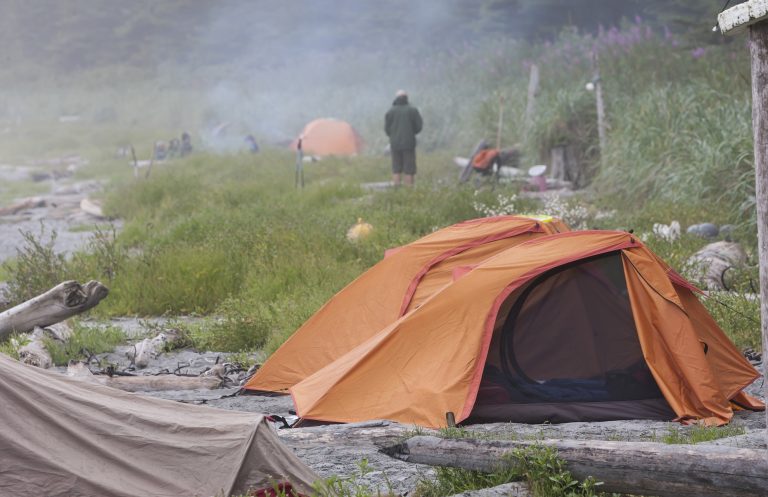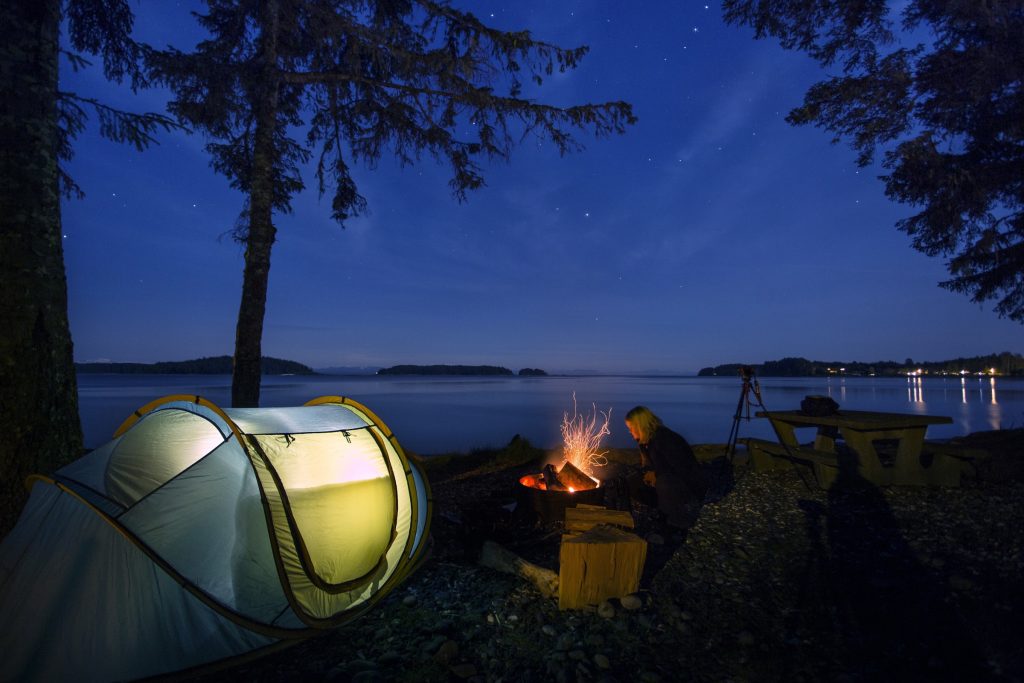The Wild Pledge is a promise to engage with the diverse landscapes and lively communities of Vancouver Island in a manner that reflects care, respect, and intention. While taking the pledge is a great first step, it’s imperative that we as travellers fully understand how to transform this commitment into tangible actions. Welcome to the first in a series of posts in which we dive into the actions of The Wild Pledge and explain how you can bring them to life on your adventures. For this inaugural post, we delve into the crucial element of ‘Leave No Trace’. Join us on our journey of becoming more responsible Vancouver Island explorers!
What Leave no trace means
Leave No Trace means precisely what it seems: venturing into a natural space, whether it be a beach, forest, or land in such a way that you leave it as close to its natural condition as when you arrived. More than just tidiness; Leave No Trace is a mantra rooted in mindfulness and intentionality. It means pausing and deliberately choosing your paths, considering the potential repercussions of your movements on the landscape around you. Keeping our wild spaces, clean, untrampled, and generally wild not only protects thriving ecosystems but ensures future travellers get the same rugged experience you did.

Practical Examples and Tips to Leave No Trace
Pack It In, Pack It Out
A simple but effective saying you may have heard is “Leave nothing but footprints.” Whatever you carry into nature should head back out with you, particularly when it comes to plastic waste. We can all do our part by packing light and purposeful, and using reusable alternatives for bottles, cups, cutlery, straws, and food containers. As you’re preparing meals for your adventure, consider how you can reduce waste. For example, reusable silicone bags are a great substitute for disposable plastic ones. Local businesses such as Port McNeill’s Essentials Refillery, Port Hardy’s Juntos, and West Coast Community Craft Shop carry many such items. Separate regular waste from hazardous waste and inspect your campsite, rest area, or picnic spot thoroughly before you leave, checking for trash, food scraps, and cigarette butts. If you happen upon the remnants of others’ journeys, lend a helping hand in taking that with you as well. This ensures that the land is left even more pristine than how you found it. Gold star!

Leave the Natural Environment Undisturbed
During your outdoor adventures, leave nature unaltered by avoiding any construction of makeshift structures, or moving rocks and plant life. Although building rock cairns can seem like a fun activity, they’ve been known to disorientate hikers, being mistaken as trail markers and leading people off-trail and into danger. Along with this, displacing rocks can destabilize ecosystems within our rivers, streams, and beaches over time. Remember, don’t take away any souvenirs from nature – plants, rocks, or native species included. Photographs will have the same memory-inducing effect.

Camp and Travel Responsibly
Try to only hike on existing trails but if you are moving off-trail, always stick to durable surfaces like bare ground, rock, sand, dry grass, or deep snow. The same goes for camping. To support local, we always advise booking one of the Island’s many campgrounds and RV resorts. Another option is to reserve a BC Parks front or backcountry site. The fees you pay for these campsites help maintain the environment for everyone to enjoy.

Be Careful with Waste (Of All Kinds!)
We know this isn’t everyone’s favourite topic, but there’s nothing worse than coming across someone else’s business while in nature! If there are no washroom facilities, handle human waste by digging a hole 15-20 cm deep, more than 60 m from water sources, trails, and campsites, and cover it up after each use. Toilet paper should be packed out or buried in the same hole. Every bit of garbage or waste left in our wild spaces, no matter how small, can disrupt the delicate balance of nature, so remember to always handle it responsibly. You can find outdoor sanitation gear at MEC or many local hardware stores.
Minimize Your Water Impact
While in nature, it’s important to minimize the use of products containing unnatural chemicals. Common chemicals used in thousands of products, especially sunscreens, can potentially harm marine and plant life. So, before diving into one of the many swimming spots scattered around Vancouver Island (including the ocean!), try to be as free of chemicals as possible and opt for a mineral sunscreen. For freshening up or dishwashing, ensure you’re more than 60 m away from any water sources and use minimal amounts of biodegradable soap. You can conveniently purchase many of these sustainable, organic products from local businesses such as Essentials Refillery, Juntos – Port Hardy Refill, and Cure Soaps. Try to scatter grey water over large vegetation areas, ideally after filtering out food debris to be packed out with your waste.
Fire Safety
There’s something deeply mesmerizing about a campfire. But as we savour this ancient storytelling medium, we need to be conscious of their lasting impact on the landscape. Where fires are permitted, always use designated fire rings, keep flames low, use small dead wood found on the ground, and ensure every spark is extinguished before you move along. Fire bans and restrictions should always be followed, and you can check them for our Coastal Fire Centre zone here. When it comes to cooking, using a portable stove is a great alternative and much safer for the environment. If you decide to use a barbecue or portable stove, place it on durable surfaces to protect the soil and roots from burning.

By adopting these practices, we can fulfill our Wild Pledge to Leave No Trace, ensuring that future generations can enjoy the captivating beauty of Vancouver Island just as we get to today. Stay tuned for the next post in our series, where we look at the second pillar of The Wild Pledge – Encourage the Celebration of Local Cultures, Traditions, & Heritages. Share this story with the hashtag #ForTheGoodOfOurWild and together we can create a Vancouver Island wave of responsible travellers!